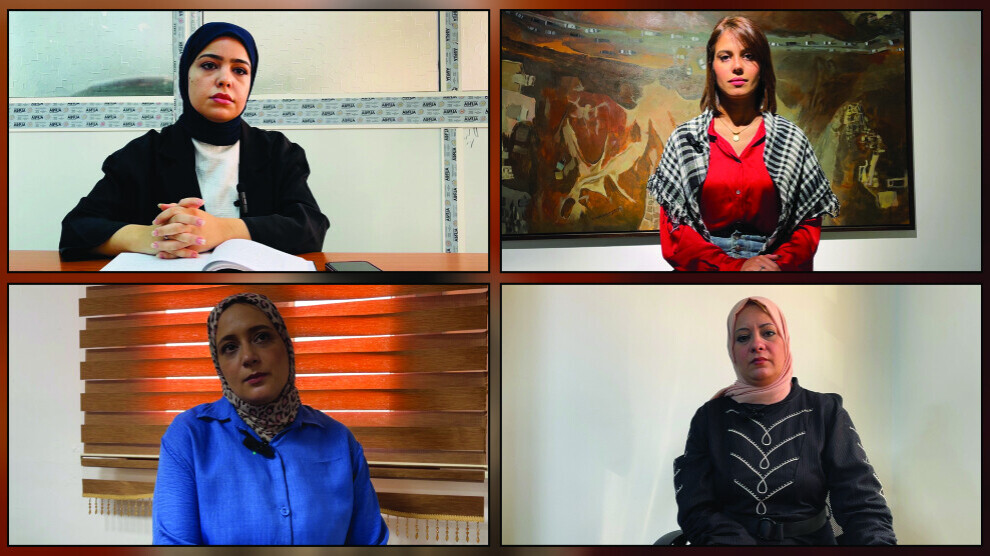Gaza journalists targeted as press freedom fails
Libyan journalists highlight the plight of Gaza’s reporters, who face direct targeting and death while reporting, exposing the global failure to protect press freedom and its defenders.

IBTISAM AGHFIR
Benghazi - In Libya, a country exhausted by internal conflicts and divisions, the official voice supporting Gaza and the atrocities committed there has been absent, while Israeli forces continue to silence the truth carried by journalists through words and images. Despite this silence, Libyan female journalists express solidarity with Gaza through their writings on digital platforms.
Our agency recorded the opinions of several Libyan female journalists and conveyed their voices on what is happening to journalists and civilians in Gaza.
‘Killing journalists kills the truth’
Journalist Bushra Al-Khafeefi said, “We, as female journalists in Libya, express our deep sorrow over what is happening in Gaza—killing, starving, and torture—as if Israel wanted to send the world a message that killing journalists means killing the truth itself and attempting to erase what is happening there.”
She added, “I feel powerless because I cannot effectively convey my voice or protest, which is very painful for us. We are in Benghazi and do not live in a war, yet we feel exhausted by our profession. How much more difficult must it be for journalists in Gaza, who know they are targeted yet continue their work courageously?” She hopes journalists worldwide will stand in protest to support Gaza and convey its voice.
‘Hiding its crimes from the world’
Journalist Huda Ahmed Al-Abdali stressed, “The Palestinian cause is one we were raised to support. As long as there is occupation, resistance and support are necessary.” She added, “What happened in Gaza exceeded all expectations—from killings to displacement affecting everyone, from the youngest child to the oldest elder, without humanity. The atrocities equal the horrors of major historical wars.”
She views targeting journalists as a double crime: “Killing a journalist means killing the truth. During the war, we reported from Benghazi without distortion. Imagine the journalists in Gaza, facing states that deny their right to life and support the occupation. Deliberately targeting them while covering massacres proves that Israel seeks to hide its crimes from the world.”
‘How can we feel safe?’
Journalist Rania Al-Aribi sees the events in Gaza as an issue that transcends Palestine: “Killing journalists is a major warning sign for the profession and a blatant violation of international law.” She asked, “If the world ignores the killing of our colleagues in Gaza, how can we feel safe if threatened in the future?”
Regarding the absence of a collective response from Libyan female journalists, she explained, “Libya’s unstable security and political situation hinders any protest initiative or solidarity stand. The division of press institutions has also contributed to the lack of a unified stance on Gaza.”
‘Free speech is more dangerous than a bullet’
Journalist Fatima Al-Zahraa Najm described the killing of journalists in Gaza as a crime against humanity and freedom of expression: “These crimes exposed the falsehood of global press freedom slogans. The assassination of the first journalist in Gaza was enough to reveal the fragility of those slogans. The occupation knows that free speech is more dangerous than a bullet, which is why it seeks to silence it.”
She added that protests and rallies are fleeting, whereas the real stand is to continue speaking and reporting the truth, even if the journalists themselves are gone. This is what Gaza’s journalists have done—they did not stop at condemnation but continued to deliver images and words from the heart of the battlefield, ensuring their message reaches the world.
